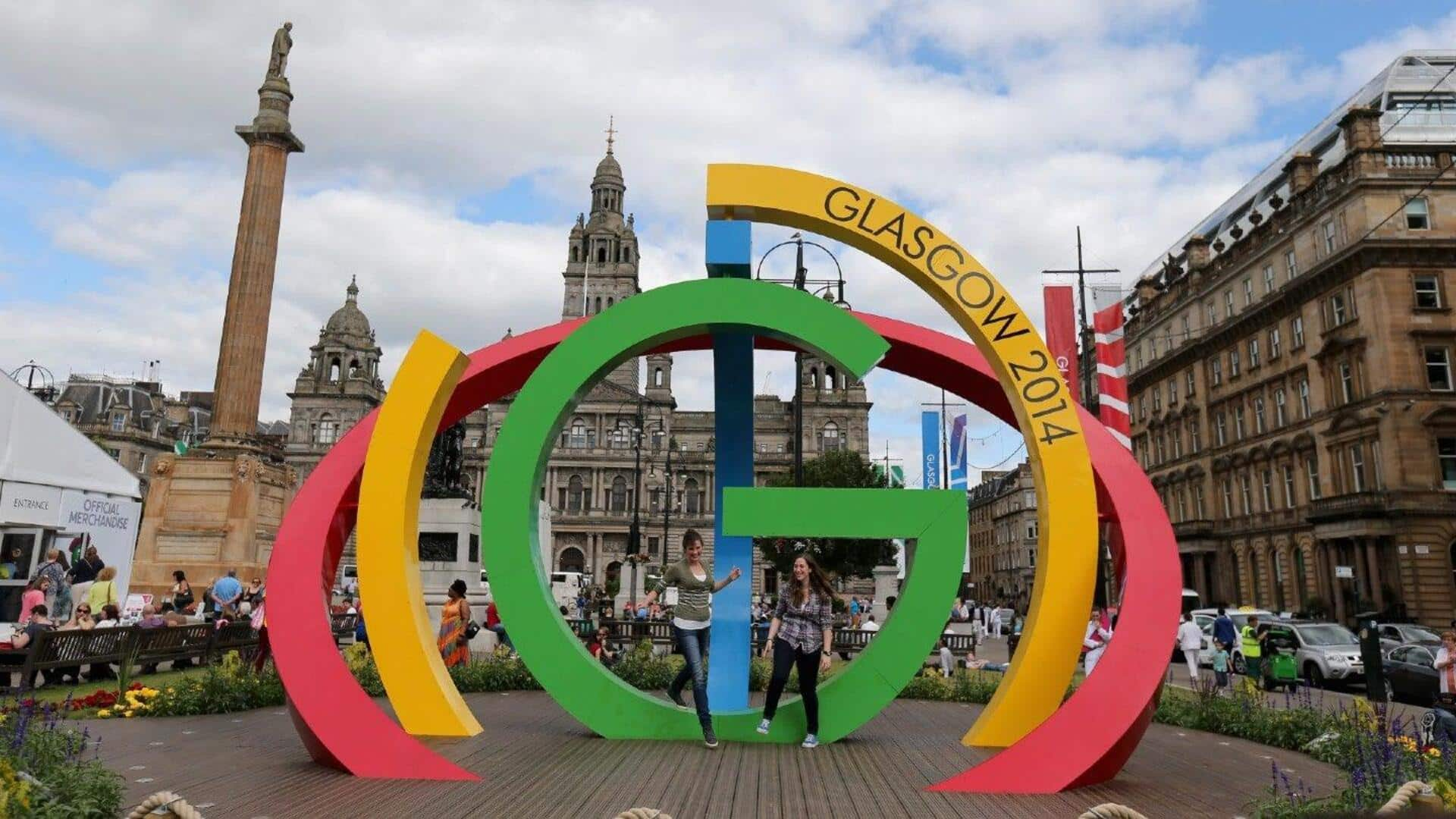
Glasgow to host 2026 Commonwealth Games, gets government approval
What's the story
The Scottish government has officially approved Glasgow as the host city for the 2026 Commonwealth Games (CWG).
This decision comes after the original hosts, Victoria in Australia, withdrew last year due to escalating costs.
The announcement was made by Scottish Health Secretary Neil Gray, who expressed his support for a more streamlined version of this multi-sport event.
Here are further details.
Strategic planning
Scotland's cost-effective plan for Commonwealth Games
In April, Commonwealth Games Scotland (CGS) proposed a "cost-effective" plan to host the Games in Glasgow.
Gray confirmed that the Scottish government had conducted a thorough assessment of this scheme and decided to back it.
He stated, "I was pleased to write to Commonwealth Games Scotland today to inform them that the Scottish Government will give its support for the proposal."
Financial strategy
Glasgow's 2026 plan doesn't require major public investment
The president of the Commonwealth Games Federation (CGF), Chris Jenkins, welcomed the news.
He emphasized that the Glasgow 2026 plan does not necessitate significant public investment.
"At the heart of our discussions has been an investment of £100 million ($132 million) from the CGF and the commitment that Glasgow 2026 would not require financial underwriting from either Scottish or UK Governments," he said.
Funding assistance
Australia to fund part of the costs
Australia has also agreed to fund a portion of the costs for the Glasgow Games.
Jenkins acknowledged this contribution, stating that "the additional generous contribution of around £2.3 million from Commonwealth Games Australia to the Glasgow concept will further enhance the Games delivery."
This Australian funding is seen as part compensation from Victoria's government to CGF, following their withdrawal as hosts due to cost concerns.
Hosting strategy
Glasgow's approach to hosting the 2026 Games
The 2026 Games in Glasgow are expected to be significantly scaled down, featuring only 10-13 sports compared to the 19 showcased at the Birmingham Games in 2022.
The organizers plan to use existing venues and accommodation facilities, with an estimated cost of £130 million-£150 million ($170 million approximately).
The Australian financial aid is anticipated to cover additional policing and security expenses.